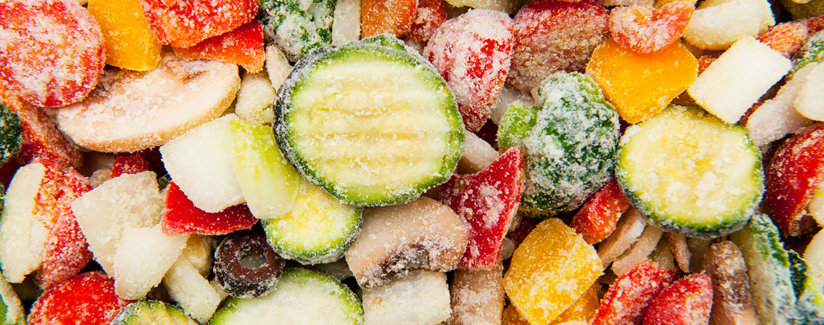
What is Listeria?
The recent listeriosis outbreak in Europe has raised questions about Listeria and how to protect ourselves from a possible outbreak. We asked Best Food Facts expert Londa Nwadike, Assistant Professor and Extension Food Safety Specialist at Kansas State University and University of Missouri, to fill us in.
According to the Centers for Disease Control and Prevention (CDC), Listeria infection is caused by the bacteria Listeria monocytogenes which is one of the leading causes of foodborne illnesses within the U.S. Listeria is found in soil, water and some animals and is unique because of its ability to grow in cold temperatures.
Listeria can be found in any product that is not cooked immediately before consumption but is commonly associated with raw milk, products made from raw milk, and some processed foods, Dr. Nwadike said. The outbreak in Europe involved frozen vegetables. Listeria bacteria is killed through pasteurization and proper cooking methods.
Listeriosis, which is the illness caused by a Listeria bacteria infection, can affect anyone but certain groups of people are at a much higher risk. Dr. Nwadike said pregnant women, young children, those who are over the age of 65 and those who have a weakened immune system should be especially careful.
Symptoms of listeriosis can vary but often include flu-like symptoms, such as fatigue and muscle aches. Symptoms can occur the same day as eating contaminated food but usually take one to four weeks to show. Listeriosis is diagnosed using a bacterial culture from a body tissue or fluid, such as a blood sample, and once diagnosed is treated with antibiotics.
To avoid contracting Listeria follow these steps:
- Chill food to the correct temperature. Check your refrigerator’s and freezer’s temperature with a thermometer. Your refrigerator should be less than 40°F and your freezer less than 0°F.
- Use ready-to-eat foods by the “use by” date.
- Clean your refrigerator regularly with hot water and a mild soap.
- Follow proper food safety protocols including rinsing raw produce thoroughly.
- Closely follow cooking directions on packages and do not eat food raw that is intended to be cooked before consumption.
- Avoid higher-risk foods such as unpasteurized milk and raw sprouts. This is particularly important for those at higher risk for listeriosis.
Those at a higher risk for listeriosis should take extra precautions such as heating hot dogs and deli meats before consuming.
Canada and the United States have extensive regulations in place to reduce foodborne illnesses. Dr. Nwadike mentioned that food processors rely on strict sanitation standards to ensure the products they produce are free from contamination. Federal, state and local governments investigate foodborne illnesses to stop outbreaks.
Listeria is a type of bacteria that can cause foodborne illness. To avoid contracting listeriosis, follow proper food safety protocols and use caution when consuming certain foods.


























